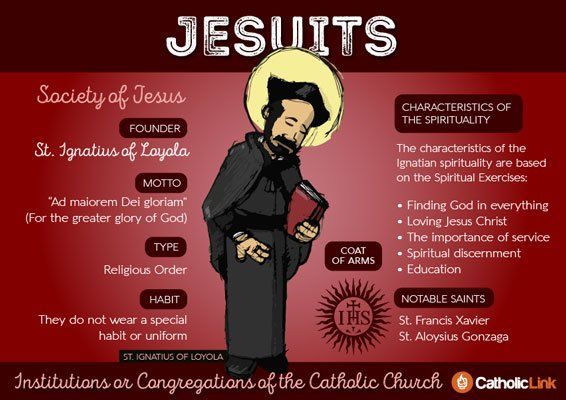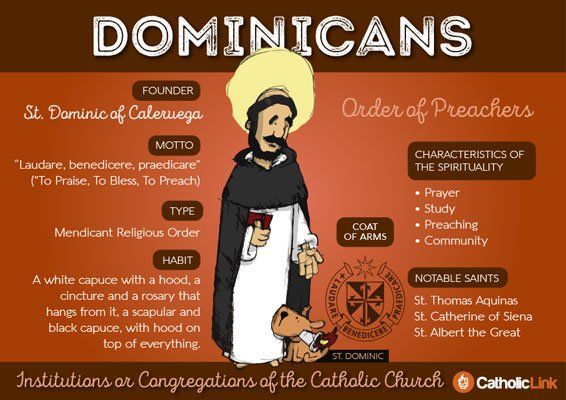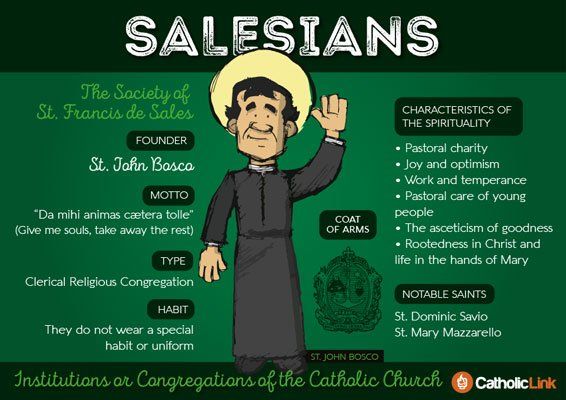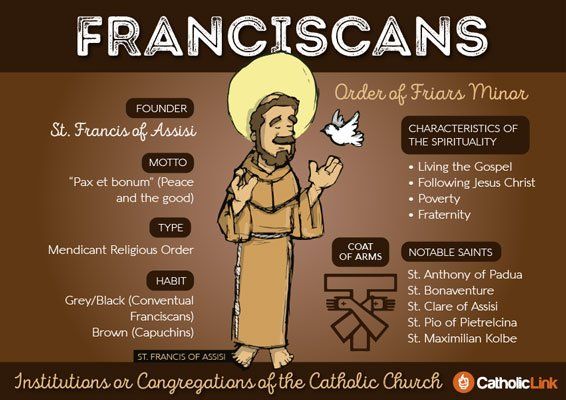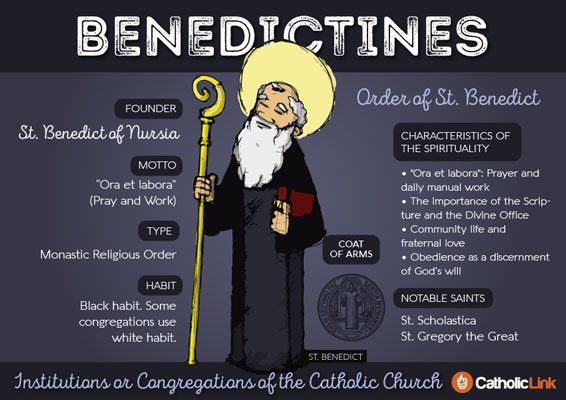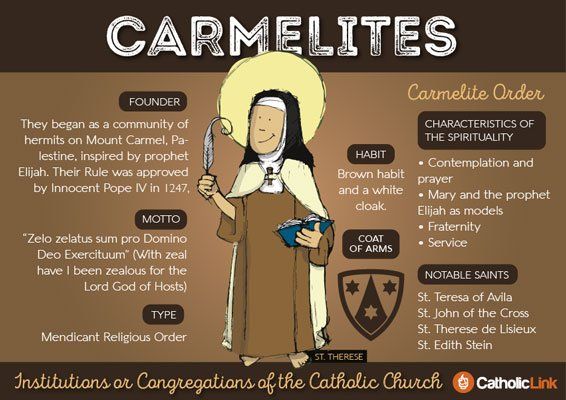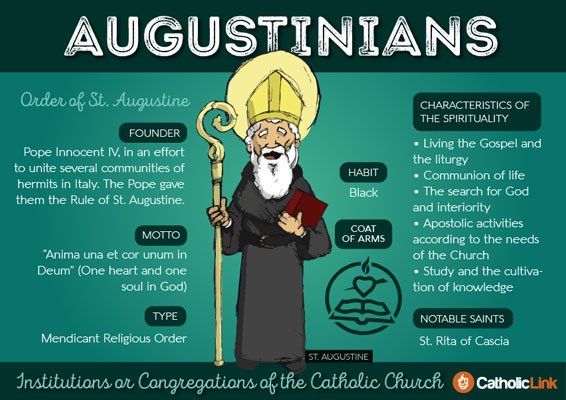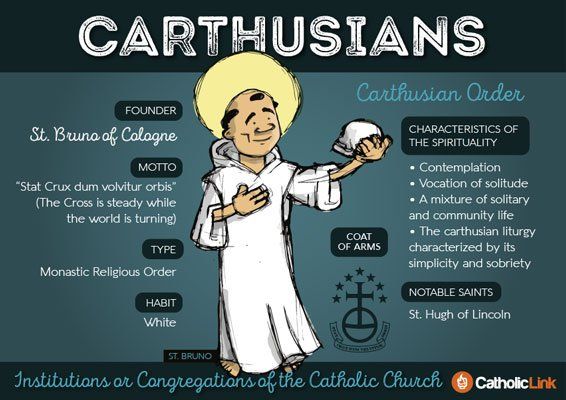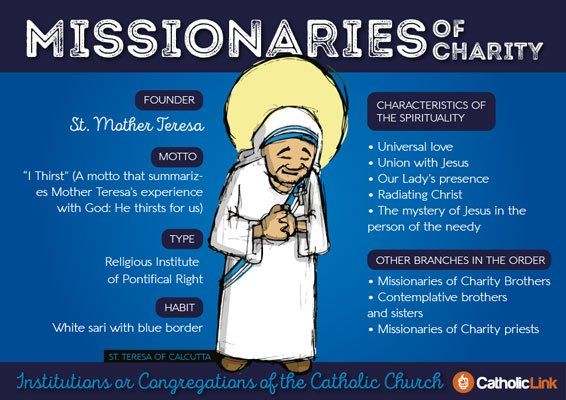5 Steps to Discern a Monastic Vocation
What are the stages to become a monk?
1
Begin in Prayer
St Benedict begins his Rule by saying that “each time you begin a good work, you must pray to Christ to bring it to perfection.” Discernment begins in prayer, where we open ourselves to the guidance of the Holy Spirit as we try to understand what God really desires for me in my life. Ultimately, we pray with Christ those simple words as he sought to do the will of his Father in heaven: “Thy will be done.” As the poet Dante Alighieri wrote, “In his will is our peace.”
A good sign of a monastic vocation is a regular involvement in parish life and a particular love of the liturgy where we encounter Christ in word and sacrament.
2
Explore the Different Varieties of Religious Life
Assuming someone has a calling to some form of religious life, it is worth considering the different ways this is lived out. Different orders were founded at different times of the Church’s history have been shaped by the spirit of their original founders. St Dominic founded the Order of Preachers, for example and today many engage in teaching. The Jesuit’s were founded with a strong sense of mission in the Church. Some monasteries offer a more contemplative existence than others, are more ‘enclosed.’ Others run schools.
At Belmont we are shaped by the rhythm of monastic life established by St Benedict in his Rule, but the turns of English history mean that we also share a sense of mission in England and Wales, with pastoral ministry and retreat work alongside the more traditional monastic tasks.

3
Contact the Vocations Director or Novice Master
Begin a conversation with the monastery by contacting the Vocations Director or Novice Master with any questions you may have. Email is the easiest way to do this today, but it is helpful first to give some information about yourself: age, background and work, experiences of life and of faith.
Raise any questions you might have. This conversation might help you further listen to the voice of God and discern if you are being called to the community. At Belmont the Novice Master deals with vocational enquiries. Sometimes it is necessary to take that ‘leap of faith’ to explore things further.
Raise any questions you might have. This conversation might help you further listen to the voice of God and discern if you are being called to the community. At Belmont the Novice Master deals with vocational enquiries. Sometimes it is necessary to take that ‘leap of faith’ to explore things further.
Visit the Monastery
Only so much discussion can be had via Internet or addressed on the telephone. At some point it is necessary to experience the monastic life at first hand. In fact, it is not possible to discern a religious vocation “in theory.” The monastic life is lived with a definite set of people, following a particular pattern of prayer in a certain place and context. Therefore it is good to make an initial brief visit to the monastery.
A good sign at this stage is that you feel “at home” in a community and its way of life and prayer. Some of our monks have expressed the feeling of falling in love with the place on their first visit. That may not happen to everyone. But a feeling of attraction and wanting to experience more of the life might indicate the path to which you are being called.
Visiting a monastery might give you a sense that you are called to live a life in community. A life lived with others from different backgrounds has its joys as well as its challenges. It is a marathon, not a sprint. It requires patience with ourselves as well as with others. In the formation process we grow in knowledge not only of God, and of others but also of ourselves.
4
Reflect further on your experience and pray for wisdom
In the light of your visit you might have a stronger sense of what God is calling you to in life. If it is to a monastic vocation, discussion with the Novice Master or Abbot will help clarify this. It would be necessary to make regular visits, as far as work or studies allow.
Any discernment must be done in prayer, with an openness to the guidance of the Holy Spirit.
God rarely speaks through thunderbolts or throwing us off horses. Rather he speaks to us through the gentleness of the Holy Spirit, often just nudging us along. It might be the feeling of being drawn to something that is deeply attractive. We assess the things that we hold onto that keep us from responding, but ultimately his call compels us because he shows us a better way, a life-giving way, a way that is true to God, and ultimately truer to ourselves. Few people are called to live the monastic life, but if the call is true we will only be truly happy if we respond.
The Prayer of Blessed John Henry Newman
It is helpful to keep in mind the words of Blessed John Henry Newman who wrote,
“God has created me to do him some definite service;
He has committed some work to me
which he has not committed to another.
I have my mission… He has not created me for naught.
I shall do good, I shall do His work;
I shall be an angel of peace, a preacher of truth in my own place, while not intending it,
if I do but keep His commandments and serve Him in my calling.”
He has committed some work to me
which he has not committed to another.
I have my mission… He has not created me for naught.
I shall do good, I shall do His work;
I shall be an angel of peace, a preacher of truth in my own place, while not intending it,
if I do but keep His commandments and serve Him in my calling.”

